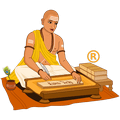























Sunrise05:22
Sunset18:21
Moonrise17:39
Moonset05:24
Shaka Samvat-3288 Vikriti
Vikram Samvat-3153 Shubhakrit
Gujarati Samvat-3154 Plava
Amanta MonthJyeshtha
Purnimanta MonthJyeshtha
WeekdaySomawara
PakshaShukla Paksha
TithiChaturdashi upto 06:54
TithiPurnima upto 05:07, Apr 10
YogaShubha upto 19:06
KaranaVanija upto 06:54
KaranaVishti upto 17:58
KaranaBava upto 05:07, Apr 10
Pravishte/Gate7
MoonsignVrishchika upto 18:00
Rahu Kalam06:59 to 08:36
Gulikai Kalam13:29 to 15:06
Yamaganda10:14 to 11:51
Abhijit11:25 to 12:17
Dur Muhurtam12:17 to 13:09
Dur Muhurtam14:53 to 15:45
Amrit Kalam09:38 to 11:09
Varjyam01:45, Apr 10 to 03:17, Apr 10
Notes: All timings are represented in 24-hour notation in local time of Fairfield, United States with DST adjustment (if applicable).
Hours which are past midnight are suffixed with next day date. In Panchang day starts and ends with sunrise.


 Karka 06:35
Karka 06:35 Ashlesha 06:35
Ashlesha 06:35

 Simha
Simha Magha 05:38
Magha 05:38

 Kanya
Kanya Hasta 25:37+
Hasta 25:37+

 Vrishchika
Vrishchika Anuradha 19:11
Anuradha 19:11

 Vrishchika 18:00
Vrishchika 18:00 Jyeshtha 18:00
Jyeshtha 18:00

 Dhanu 23:03
Dhanu 23:03 P Ashadha 17:01
P Ashadha 17:01

 Makara
Makara U Ashadha 17:26
U Ashadha 17:26

 Makara 07:24
Makara 07:24 Dhanishtha 20:23
Dhanishtha 20:23

 Kumbha
Kumbha Shatabhisha 22:48
Shatabhisha 22:48

 Kumbha 18:55
Kumbha 18:55 P Bhadrapada 25:39+
P Bhadrapada 25:39+

 Meena
Meena U Bhadrapada 28:42+
U Bhadrapada 28:42+

 Meena
Meena Revati
Revati

 Meena 07:42
Meena 07:42 Revati 07:42
Revati 07:42

 Mesha
Mesha Ashwini 10:25
Ashwini 10:25

 Vrishabha 27:33+
Vrishabha 27:33+ Rohini 15:17
Rohini 15:17

 Mithuna
Mithuna Mrigashira 15:40
Mrigashira 15:40

 Karka 12:44
Karka 12:44 Ashlesha 12:44
Ashlesha 12:44

 Simha
Simha Magha 11:23
Magha 11:23

 Simha 15:35
Simha 15:35 P Phalguni 09:57
P Phalguni 09:57

 Kanya
Kanya U Phalguni 08:29
U Phalguni 08:29

 Kanya 18:21
Kanya 18:21 Hasta 07:03
Hasta 07:03

 Tula
Tula Chitra 05:40
Chitra 05:40In Hindu Calendar, the day starts with local sunrise and ends with next day local sunrise. As sunrise time is different for all cities, Hindu Calendar made for one city is not valid for any other city. Hence it is important to use location based Hindu Calendar, like this website. Further, each Hindu day consists of five elements, which are called angas. These five elements are -
In Hindu Calendar, all five elements together are called Panchang. (In Sanskrit: Panchang = Pancha (five) + Ang (part)). Hence Hindu Calendar which shows all five elements for each day is called Panchang. In South India Panchang is known as Panchangam.
When Hindu Calendar includes Muslims, Sikh, Christian, Buddhist and Jain festivals, including national holidays, it is called as Indian Calendar.